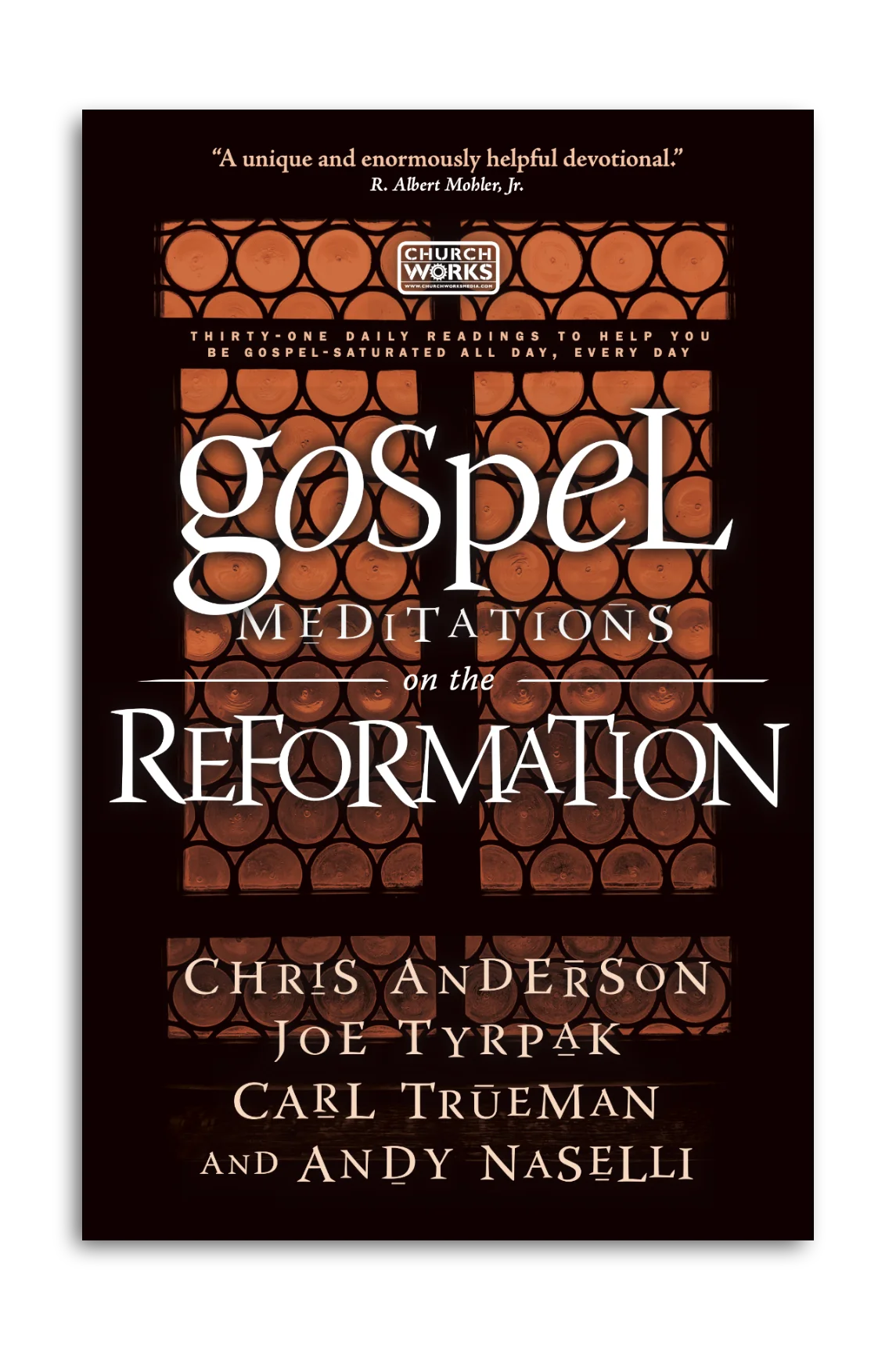
Blog
Solus Christus: Christ Is Sufficient

This post by Chris Anderson comes from Gospel Meditations on the Reformation (Day 12: “Rome’s Antagonism to Christ”).
“For Christ…suffered once for sins.” (1 Peter 3:18)
How Rome Contradicts Solus Christus
There are religions which are overt in their attempts to diminish the glory of Christ’s person and work. Islam relegates Him to a superseded prophet. Hinduism and Buddhism don’t recognize Him at all. Mormons and Jehovah’s Witnesses make Him but one of many gods. By those standards, Roman Catholicism seems orthodox, or at least benign.
Roman Catholicism holds to the deity of Christ, the virgin birth, the sinlessness of Christ, and the resurrection. But tragically, the errors of Catholicism are extremely antagonistic to Christ. Let’s consider just a few ways in which official Catholic doctrines are hostile to our Savior.
Rome teaches that Christ’s suffering is not finished.
The doctrine of transubstantiation was a focal point of the Reformation. Catholicism teaches that the bread and wine of the Eucharist actually become the very body and blood of Jesus Christ. Why is this significant? Because it means that Catholics believe that Jesus’ one-time sacrifice is not finished but is ongoing.
Scripture, however, teaches that Jesus cried out in triumph just before His death, “It is finished” (John 19:30)! Jesus offered Himself once as a perfect, “once-for-all” sacrifice (Hebrews 7:27; 9:12, 26; 1 Peter 3:18).
Rome teaches that Christ’s sacrifice is not sufficient.
Contrary to the Bible’s clear teaching that Jesus’ death entirely satisfied the wrath of God against sinners—a wonderful doctrine known as propitiation (1 John 2:1–2)—Catholicism teaches that sinners must suffer for their sins themselves in purgatory, the half-way house between earth and heaven where residual sins are “purged.” But Hebrews 1:3 says that Jesus “purged” or “purified” sins once and for all by His death on the cross.
Rome teaches that Christ’s mediation is not exclusive.
Rome places several human “intermediaries” between the sinner and God. Mary—presented in the Bible as a godly but redeemed sinner (Luke 1:47)—is called by Rome the “Mediatrix” and “Co-Redemptrix,” indicating that Catholics believe Mary to have authority to grant Jesus’ saving grace. The pope is called the “Vicar of Christ,” meaning that he is allegedly the earthly representative who officially speaks and acts in the place of Christ. Further, saints hear and answer prayers, and priests are essential to hear confessions and absolve sinners.
But Scripture insists that the exclusive Mediator between God and men is Jesus (1 Timothy 2:5). The only Intercessor we need is Jesus (Hebrews 7:25). We have direct, first-hand access to God because of Jesus (Ephesians 2:18; 3:12; Hebrews 10:19–22).
A Call to Reaffirm Solus Christus
These are significant errors. My aim is not to mudsling. Although Calvin relished calling the pope the Antichrist, Roman Catholics would be horrified to think that the doctrine of their church is anti-Christian. Indeed, many self-identifying Catholics have actually been born again by faith in Jesus and His finished work. But they have come to know Christ in spite of their church’s official dogma, not because of it. To such people, I issue a loving call to come out from Rome and find a church that stands without apology or amendment on the Scriptures.
To those who are yet trusting Catholicism—or any other works-based religious system—I urge you to repent of your sins and trust Jesus Christ as your only hope of salvation. There is salvation in Him alone—solus Christus—(Acts 4:12), whereas trying to earn salvation will damn you (Ephesians 2:8–9).
Hold tenaciously to the authority of the Scriptures and the sufficiency of Christ.
Finally, I urge the evangelical church at large to resist calls to undo the Reformation by uniting again with Rome. There is no question that the great doctrines of the Reformation are under attack again today. Much of evangelicalism is “slouching towards Rome.” Our response, as ever, must be to hold tenaciously to the authority of the Scriptures and the sufficiency of Christ.
Let the gospel renew your commitment to Solus Christus!
Explore the whole book!
October 31, 2017, marked the 500th anniversary of Martin Luther’s posting of his Ninety-Five Theses and the beginning of the Protestant Reformation. In honor of this occasion, Church Works Media teamed with noted church historian Carl Trueman and theologian Andy Naselli to write 31 daily devotionals, taken from Scripture and illustrated with scenes from Reformation history. These meditations will feed your mind, warm your heart, and point your thoughts to Christ! Soli Deo Gloria!













